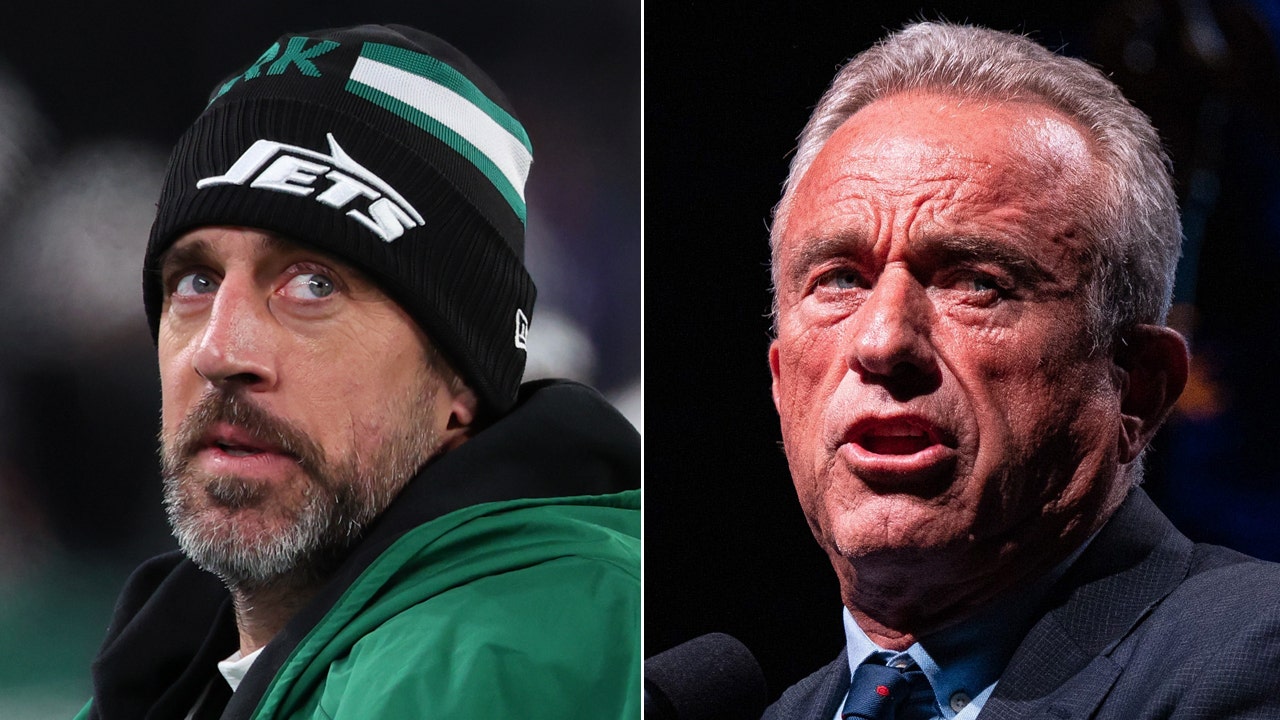Port Sudan- The head of the Sudanese government delegation to the consultations with the American side, Minister Mohamed Bashir Abu Namu, confirmed the government’s openness to any peace initiative, whether the current one is mediated by… Saudi Arabia andWashington Or any other initiative, with the necessity of linking any negotiation – at any time and place – to the decisions of the Jeddah Agreement.
In a special interview with Al Jazeera Net, he said that what happened in Geneva It was not negotiations in the conventional sense, but rather “coordination to escape and create confusion so that people would forget the Jeddah platform and its signed commitments.”
Abu Namu revealed that the American envoy said explicitly – in an informal meeting with Sudanese officials – that the Jeddah Agreement had been “overtaken by the new military reality on the ground, meaning that… Rapid Support Forces I got new lands.”
He denied the government’s intention to enter into a confrontation with Washington, and stressed that by not sending its delegation to Geneva, it wanted to say that “no one in this world knows the interests of the Sudanese people more than he himself.”
Below is the text of the interview:
-
What is your vision after the failure of the Geneva negotiations?
First, what happened in Geneva was not negotiations in the conventional sense, but rather coordination between the militia and behind it the well-known state and the American mediator, to escape from the Jeddah platform and create confusion around it so that people would forget it and the commitments signed between the two parties, to bypass their implementation and begin new negotiations under the pretext that there is a new reality on the ground that has bypassed this platform.
For your information, the American envoy has explicitly stated this in Cairo In an informal meeting with Sudanese officials some time ago, he said that the Jeddah Agreement had been overtaken by the new military reality on the ground, meaning that the Rapid Support Forces had acquired new territory, even though this acquisition process – in itself – was an additional violation of the Jeddah Agreement.
After the Geneva meeting, we are open to any peace initiative, whether the current one mediated by Saudi Arabia and America or any other initiative, with the necessity of linking any negotiation at any time and place to the decisions of the Jeddah Agreement, and after implementing them we can move forward, so as I said we are open and not afraid.
It is known that there are always minimum and maximum limits for fear in any serious matter. The Sudanese people, during the past 16 months, have exceeded all maximum limits for fear. The militia has come down on them with brutality, killing and torture. It has forcibly displaced them from their homes and settled in them, and brought their families and settled them in them, some of them from across the border.
Some of these houses were turned into military barracks, their free women were raped, some were taken as captives for sale and pleasure, slave markets were established in some areas of western Sudan, and some girls crossed the borders to the homes of the mercenaries in western Sudan. Africa.
The militia continued to bombard the cities it could not seize, such as: Al Fasher White and BabnusaSennar And others, and all the villages were violated Al-Jazeera State There is no army in these villages except for a very few policemen, and the livestock and crops were looted from these villages and their people were displaced en masse.
So what is left for the Sudanese people to fear from a platform that was originally intended to strengthen the militia by creating a kind of truce to catch their breath, and to rearrange their supply lines for the purpose of prolonging the war?
-
What is the fate of the Jeddah Agreement after the negotiations move to Geneva?
We do not see much importance in the spatial connection. As a Sudanese government, if the parties (the two parties to the conflict, the mediators and the observers) agree to change the platform for objective reasons, then there is nothing wrong with that and we can go to Geneva or other cities in the world and even Alaska, as I say. Property owner Vice President of the Sovereignty Council.
But after our consultative meeting with the American envoy Tom Perriello in grandmotherIt is clear to us that the American mediator seeks to achieve goals by changing the platform that have nothing to do with peace. Sudan Or accelerate its achievement.
-
What are those goals?
Among these goals:
- Monopolizing the decision in the upcoming negotiation stages by reducing and marginalizing the Saudi role and convincing Jeddah to be content with the role of joint host with the Swiss government.
- Creating a new platform and trying to impose new observers on it under the pretext of bringing in more active partners who have the influence to pressure the Rapid Support Forces, which is something we reject.
- Democratic Party The ruler in US Now in the midst of his campaign, he hopes to score some electoral points by portraying that they have brought together the main conflicting parties in Sudan in a new and vibrant forum and successfully brought in some new observers (actors). Thus, peace in Sudan can be portrayed as being at the doorstep of the Democrats, in order to harvest some American votes in the upcoming elections in about two months from now.
-
Do you expect the mediators to oblige the Rapid Support Forces to implement the Jeddah Declaration?
The Jeddah Declaration came after great efforts by the mediators to get the parties to reach it and sign it with the conviction of both parties and the testimony of the mediators. Now the Americans are hinting at imposing sanctions on the Sudanese government only for not attending the Geneva meeting, about which they did not consult with it.
Wouldn’t it be more appropriate to impose sanctions on a party that refused to implement what it signed out of its own conviction and in the presence of the same mediators? Double standards, lack of transparency, and imposing one’s will without authorization are what make the mediator lose his neutrality, and Washington is unfortunately on this path.
-
Some believe that the government’s failure to go to Geneva has put it “on the line” and put it in “trouble”. What do you think?
The terms “critical point” and “predicament” suggest that the Sudanese government has put itself in a confrontation with Washington by not going to Geneva.
The Sudanese government knows its own worth well and has no need to compete with a superpower like the United States, but anyone who reads between the lines of the strong statements of the Chairman of the Sovereignty Council Abdel Fattah Al-BurhanLast Saturday, with journalists in Port Sudan, he understood why the government did not send its delegation to Geneva.
Through the President’s statements, the government wanted to say, “No one in this world knows the interests of the Sudanese people better than he himself.” I challenge anyone who comes to me now to say, in any era of Sudan’s modern and ancient history, that the people rallied around any government as they are now rallied around the current government, for no other reason than that it took a firm stance to save the country from invasion and division.
One last thing is that experience has proven that no country in this world has ever declared war on America and crossed the oceans and went to it, but it is always the country that inserts itself into global conflicts, whether they are of its own making or of others, and in most cases without an invitation from these countries or an international mandate from the Security Council.
But there are also living experiences that Washington – after getting involved in some conflicts – has packed its bags and left those countries voluntarily, and there are experiences Vietnam Somalia and Afghanistan, the great power in this mortal world does not necessarily always have the greatest power of heaven standing with it.
We do not want to enter into conflict with America at all, but at the same time we hope that it knows that we know our interests better than it or any other country, and that we are in fact very keen to sit down with it because of its importance and discuss how to exchange interests as two sovereign countries.
It is no secret now that I have submitted a personal written proposal (without authorization from the government) to the American envoy as a serious project to open a Sudanese-American dialogue and I have sent it to him, in anticipation of our expected trip to meet him in Cairo, in the hope that we will discuss this paper on the sidelines of our official meeting in a private session between us.
But he has not responded yet, perhaps he did not like the direct language of the speech to reflect the facts, although – later – the Chairman of the Sovereignty Council reviewed the same proposal and praised it and said that it was worthy of interest and logical and a suitable basis for dialogue with the Americans.
-
Are there any calls or initiatives now being presented to the Sudanese government after the failure of the Geneva talks? Or are we facing a new military escalation and intensification of battles on the ground?
We have not seen any new initiatives yet, and perhaps it is still early, but we are ready to study any new initiatives that lead to ending the war. As for the issue of war and the escalation of battles, they have nothing to do with attempts to resume the Jeddah platform or find another one. The war will continue as long as the militia’s aggression continues and it refuses to implement the Jeddah decisions signed in May 2023.
-
Will you head the negotiating delegation in any upcoming negotiations?
No one knows who will lead the negotiations in the next stage, because this is a government decision and will be taken at the time, but the decision taken by the state leadership is irreversible that any negotiations for peace in the future will include a delegation representing the Sudanese government and not a military delegation as before.
-
What are the circumstances of what the American side described as a breach of protocol on your part in the Cairo meeting?
Unfortunately, we do not know what he meant by that phrase and which protocol he meant, whether it was the American or Egyptian protocol, and our brothers in Cairo did not inform us of anything like this.
-
There has been a lot of talk about regional and international alliances. Are there any specific countries that can be pointed out?
Such talk is always common when there is talk of a sharp disagreement between America and a country, or when a country protests Washington’s interference in its internal affairs. Because the source of such talk is often Washington or one of its allies, it is interpreted as American fears that such a country might resort to seeking its interests away from the US axis.
Such international behavior is well-known, because the basis of the relationship between countries is interests, and they are free to deal with whomever they wish, according to the exchange of benefits with the country or countries with which they have a comparative advantage in economic terms. Therefore, talking about alliances is a recurring circumstantial talk that is of no value.




